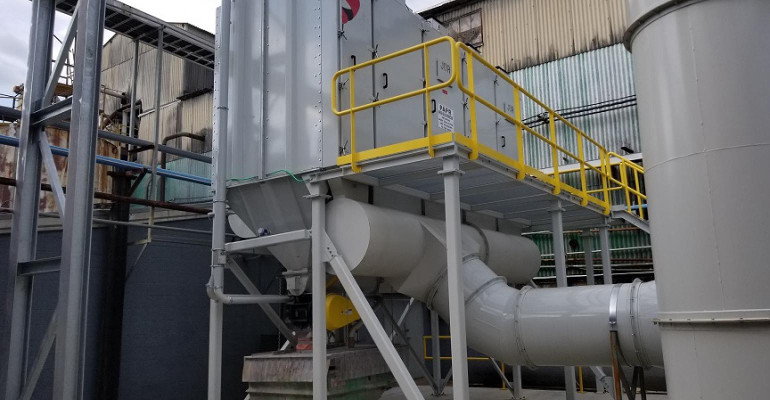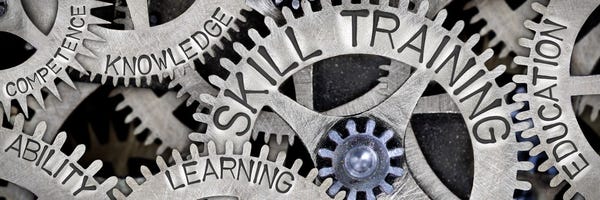How to Develop the “6th Man” for Sustainable Dust Collection System Performance
The focus of this article is to share different training strategies by which to educate and empower your operations and maintenance teams with the knowledge and skills necessary to keep your dust collection system(s) performing in top shape.
June 9, 2020

Brent Hindman, general manager, JOA Factory Exposure Solutions
There are several factors that can affect the experience level of a factory’s operations and maintenance teams: a) retirements of key individuals; b) new hires with little or no industry experience; c) effectiveness and continuity of on-the-job training. These challenges exist for most if not all powder and bulk solids equipment manufacturers and may create a knowledge gap on how to properly operate and maintain a dust collection system. In time, this can lead to performance issues such as poor dust capture, material settlement in the ductwork, unsatisfactory working conditions, premature filter blinding, reduced filter life, excessive energy usage, and unwanted emissions to atmosphere.
Sixth Man
In the sport of basketball, the term “sixth man” is frequently used to describe a critical player off the bench, or in many cases, a group of spirited fans who are able to bring their team back from the brink and create a winning atmosphere. The essential meaning for the “sixth man” can be applied to building knowledgeable and impactful operations and maintenance teams upon which to sustain long-term dust collection system performance. The focus of this article is to introduce various training styles and techniques, and how to effectively implement a customized factory training program to develop your operations and maintenance team into the best “sixth man” they can be.
In today’s fast paced business environment, training can take many shapes and forms. There is the traditional classroom environment that places the student in a group setting with an instructor who can provide for both group learning and answering direct questions from the students. This is a proven teaching method that relies on the ability of students to gather in an oftentimes remote location that takes them away from their responsibilities and requires additional travel time and expense. In many cases, only a few select personnel can attend these training events.
A growing alternative to the traditional brick-and-mortar approach is distance learning whereby the student can remotely access a live webinar from the instructor or watch pre-recorded instruction material when they require a more flexible schedule. Distance learning provides an opportunity for training when meeting in a specific location is not possible due to government regulations and/or business-related justifications. This form of training can be excellent as a refresher, but it does not replace the group learning experience within a traditional classroom setting.
On-Site Learning Seminars
A more direct and advantageous approach can be to perform on-site learning seminars at the plant itself. This can be a more impactful approach for a variety of reasons: a) training is more dynamic with idea/information sharing among the team; b) relevant discussions about existing challenges and concerns versus purely theoretical discussions; c) more and varied plant personnel may attend on-site training than would be able to attend a seminar at a remote location; d) hands-on training can be performed with actual plant equipment and not a laboratory environment; e) onsite learning is best described as a brick-and-mortar approach on wheels; this style of training comes to your location and allows for simplified scheduling and reduced expenses.

A customized factory training program should focus on the actual dust collection system(s) in operation at the facility. Each dust collection system is going to have its own history, system design, capture hoods, duct layout, filtration equipment, exhaust fan, etc. The selected training provider should be able to review your existing system(s), observe how the operations team interact with the system, review maintenance records to understand the maintenance history, and develop an understanding of the how the system(s) are currently performing. This site survey and analysis should be performed prior to the actual training. It is this critical insight that will serve as the basis for a factory-specific training program and as a platform on which to build future operational and preventative maintenance strategies. Factory-specific training can be performed on-site or in combination with distance learning and targeted off-site learning opportunities--whichever affords the maximum learning opportunity for your teams, scheduling, and costs.
The training approach applied for each facility will vary depending upon several considerations: a) experience level of operations and maintenance team; b) size of team to be trained; c) scheduling and availability of training room space; d) electronic learning possibilities; e) overall goals and expectations (both short term and long term) for your team training and its effects on the performance of your dust collection systems. It is well worth the time and effort to prepare a project summary with realistic goals, expectations, timing, and cost considerations so that smart decisions can be made on how to best implement this customized training approach with the best opportunity for success. It is important to realize that the initial steps may be challenging, but once the training process has begun, your initial training program can be modified as you see what is working and what is not. This will, in turn, lead to an improvement in your operations and maintenance team’s knowledge and confidence, which will lead to a better performing dust collection system.

Training Criteria
To provide effective dust collection system training, there are a few key qualifications and/or selection criteria that need to be considered. It is highly recommended that the company and/or specialist that is selected to provide this training should have the following qualifications: a) dust collection system design, operation, and/or maintenance experience (a minimum of 10 years shows a commitment to the industry and high level of experience); b) filtration equipment design and/or specification experience (minimum 10 years); c) prior training experience from either an on-site customer support perspective or via a centralized training program like those from the American Conference of Governmental Industrial Hygienists (ACGIH) or those performed on a state-by-state basis; d) recommendations from past customers as to their ability, integrity, and professionalism. There are several categories of companies to choose from for this service. Whether it be your original system designer, filter supplier, independent engineering firm, or industrial consultant, it is highly recommended to select a training partner that is interested in serving your team and not pushing its product or service. This will ensure that you are getting objective information from which to decide what is the best for your employees, factory, and future.
Summary
Whether in sports or business, training and performance go hand in hand. The focus of this article is to share different training strategies by which to educate and empower your operations and maintenance teams with the knowledge and skills necessary to keep your dust collection system(s) performing in top shape. It is up to plant leaders to take the first step and ask the important questions as to the goals and expectations for factory specific training based upon open discussions with your team. Their insight is critical to a successful training program. As stated earlier, the initial steps may be challenging, but once the training process has begun, the training can be fined tuned to better match your team’s needs. In a short period of time, your operations and maintenance personnel will become the “sixth man” behind not only the success of your dust collection system(s), but the overall quality of your workplace environment.
Brent Hindman is general manager, JOA Factory Exposure Solutions (Charlotte, NC). For more information, call 704-523-0777 or visit www.joafxs.com.
You May Also Like


